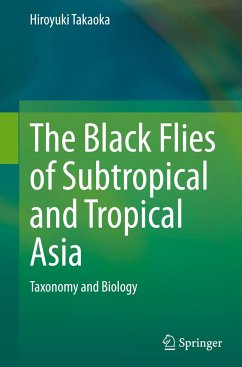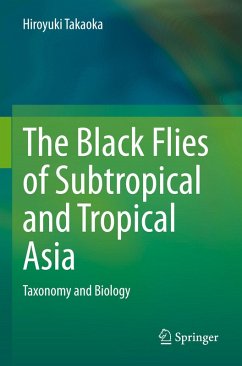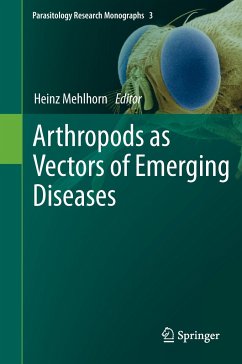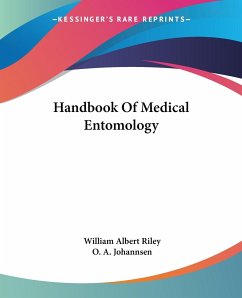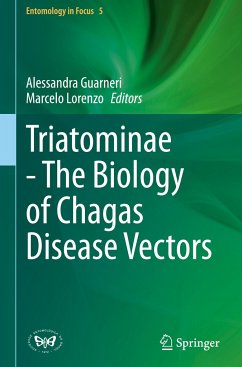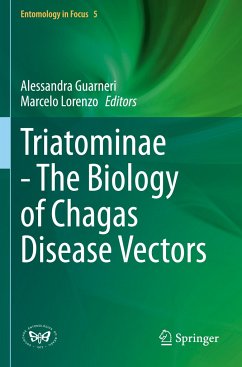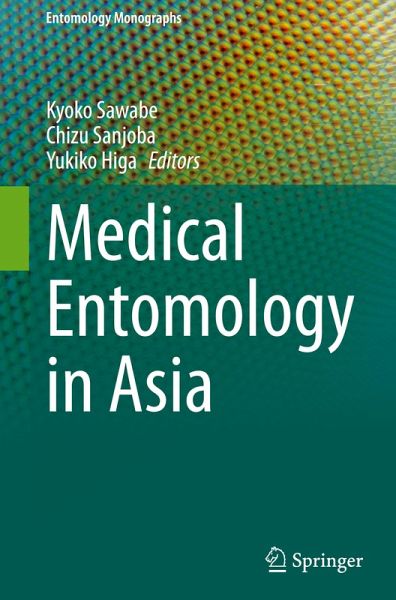
Medical Entomology in Asia

PAYBACK Punkte
65 °P sammeln!
This book presents the latest findings in medical entomology in Japan and neighboring Asian countries. It provides an overview of the current issues of medically important arthropods in this region and also refers to the issues that are likely to become more serious in the near future. It helps us understand that addressing the arthropod issues is not enough in limited regions, but requires a coordinated response throughout these regions.Global warming and globalization are affecting both vector and vector-borne diseases, causing rapid changes in their distribution and ecology. From the perspe...
This book presents the latest findings in medical entomology in Japan and neighboring Asian countries. It provides an overview of the current issues of medically important arthropods in this region and also refers to the issues that are likely to become more serious in the near future. It helps us understand that addressing the arthropod issues is not enough in limited regions, but requires a coordinated response throughout these regions.
Global warming and globalization are affecting both vector and vector-borne diseases, causing rapid changes in their distribution and ecology. From the perspective of global pest control, the book focuses not only on domestic pests in Japan but also on pests in neighboring Asian countries including the Philippines, Thailand, Taiwan, Vietnam, etc., which are geographically and economically close to Japan. Japan has experience of eradicating malaria and lymphatic filariasis, drastically reducing the number of cases of Japanese encephalitis patients, and succeeded in controlling flies in the metropolis of Tokyo. The know-how learned and created from these past successes should provide valuable information for other parts of Asia that are still struggling with pest infestation today.
With the growing interest in these issues worldwide, this book provides essential information in medical entomology for researchers, including students and early career researchers. By integrating the latest findings in medical entomology with past successes and experiences in the field, the book is also a valuable reference for many professionals planning sustainable pest control.
Global warming and globalization are affecting both vector and vector-borne diseases, causing rapid changes in their distribution and ecology. From the perspective of global pest control, the book focuses not only on domestic pests in Japan but also on pests in neighboring Asian countries including the Philippines, Thailand, Taiwan, Vietnam, etc., which are geographically and economically close to Japan. Japan has experience of eradicating malaria and lymphatic filariasis, drastically reducing the number of cases of Japanese encephalitis patients, and succeeded in controlling flies in the metropolis of Tokyo. The know-how learned and created from these past successes should provide valuable information for other parts of Asia that are still struggling with pest infestation today.
With the growing interest in these issues worldwide, this book provides essential information in medical entomology for researchers, including students and early career researchers. By integrating the latest findings in medical entomology with past successes and experiences in the field, the book is also a valuable reference for many professionals planning sustainable pest control.





